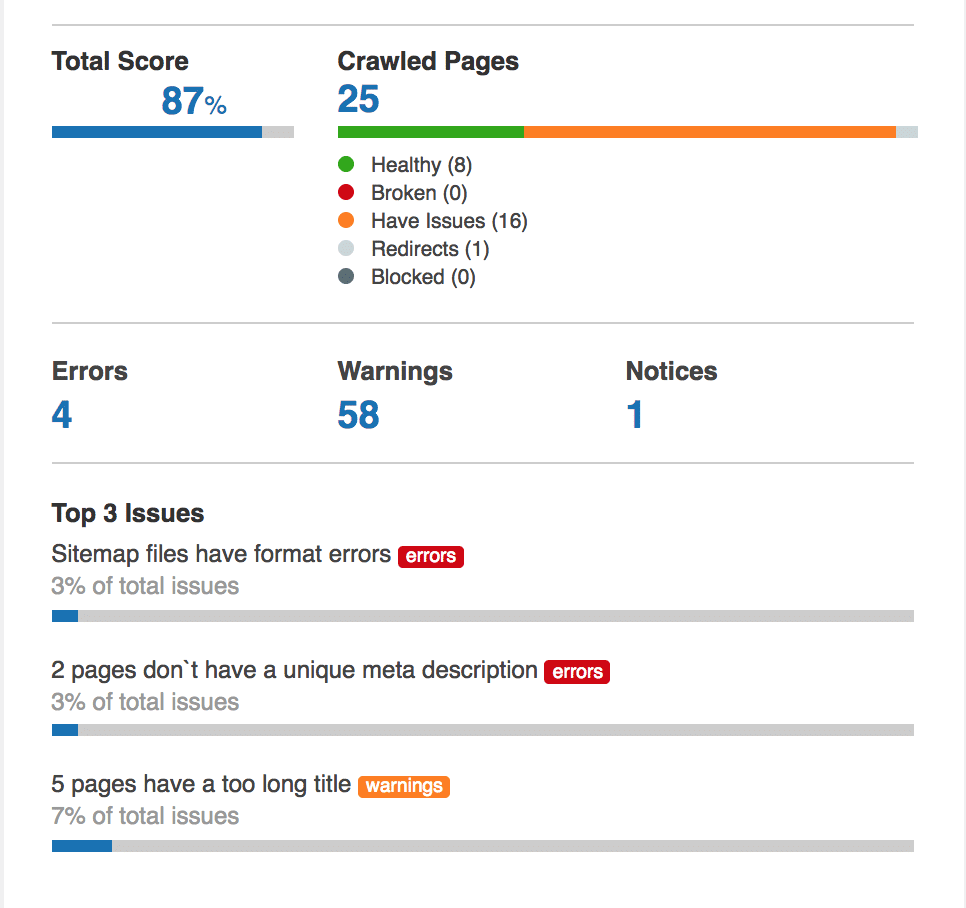If you want to improve your SEO, start with strategy, not price.
SEO is one of the more difficult realms of web development and content strategy because it’s become such a buzzword that many people have become convinced that they need it before they know what it is.
Which, of course, they do.
SEO is an essential part of your website, and of any content marketing you do. However, SEO isn’t a single service the way, say, copywriting is. It’s more of its own department—one which overlaps heavily with almost every other aspect of the web industry.
If you think about SEO the way you think about marketing, you can easily see why asking how much SEO costs is about as useful as asking how much marketing costs. You have to budget for it, so having a ballpark figure would be helpful. But that estimate is going to depend on a lot of things, from the condition of your current website to your future marketing plans.
If your plan is to budget only a small amount of money for SEO under the impression that it will magically make your website a magnet for search engines, you’re more likely to turn your business into a magnet for black hat SEO scammers. And if you are ready to drop a whole fistful of cash on SEO without investing anything toward the usability of your website or other marketing initiatives, you’re liable to neglect other aspects of your business that could take you forward.
So, before you get too settled in to the notion that SEO is the silver bullet that’s going to fix all your marketing problems, here are a few questions you should ask first.
1. What is the state of your current website?
If you take a look at our SEO services page, we can run a free audit to give you a quick snapshot of the health of your website. The results should look something like this:

This kind of audit can give you a rough idea of how much work it will take to improve the SEO on your current website. If you get a report that looks pretty good, then SEO might not be your most major concern. A deeper audit can pin down the areas of your site most in need of improvement, and you should be able to fix most of it without too many difficulties.
Many of the most common errors are pages that lack meta descriptions or pages with broken URLs. Less significant problems might be a lack of alt descriptions on images or lengthy page titles. These are sub-optimal issues, and a lot of them could drag your site down. However, they’re unlikely to actually kill your site, unless you’ve been engaging in black hat tactics.
2. Have you done anything to damage your SEO?
If you’ve been scammed into some damaging practices by a black hat SEO consultant, you may have some cleanup work on your hands. Black hat SEO practices can include keyword stuffing, content scraping, or link spamming. Fixing these issues takes some thorough cleanup, and if it’s gone far enough to bring down a penalty from Google, you may have some extra work to do to earn your way back into Google’s good graces.
Another way you might have damaged your SEO is if you employ any plugins or content strategies that are impacting the usability of your website. This can happen if you’ve chosen a poorly-designed theme, or added a number of widgets to your front end that are pulling in content from other sources. This isn’t directly an SEO problem, but it can have an indirect impact on your website if users are confused and bounce quickly. An SEO might point these issues out to you, but you may need to work with your web developer to fix them.
3. What are you trying to accomplish with your website?
One important part of your SEO strategy will involve identifying and implementing the appropriate keywords on your website. These are necessary to attract the right people through organic search, and they should be employed intelligently in your meta descriptions, headers, and page titles. Depending on how many pages you have on your website that need optimization, this work could take a while.
4. How do you integrate SEO with your website moving forward?
You can have a beautifully-optimized site, but it will only do you so much good if you aren’t putting it to work. Part of a complete SEO plan should involve your ongoing marketing—how do you plan to use your site, and how can you make sure future pages are properly optimized when you publish them? This is much easier to keep up with if you handle it as you go. Furthermore, an ongoing content marketing plan will help build your domain authority, increase your linking opportunities, and help attract inbound links from other sources. For this reason, SEO and content marketing go hand in hand. If you’re thinking about the one without the other, you’re selling yourself short.
Make the most of your budget.
Your budget is finite. But if you want to make the best use of your resources, you need to think about your end objectives first, then choose the strategy that will help you get there.
SEO will inevitably be a part of that strategy, because it’s an integral part of a good web design. But it works best in combination with other services. SEO on its own is like obsessing over an engine design without ever putting fuel in the machine.
If all you’re looking for is someone to do a thorough audit of your current website, then you can plan for that work to take about five hours. After that, you will need to ask your consultant for an estimate.
After that, if you only have a budget for about a thousand dollars’ worth of work, your best bet is to find a competent freelancer to help you out. If you have more funds, find an agency that can help you integrate an SEO strategy across your website, including your site usability and your ongoing marketing.
